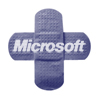Root Exploit in Devices with Samsung’s Exynos Processors
An XDA Developers forum member operating under the handle alephzain has created an exploit that obtains root privileges and enables malicious application installation on the many Samsung devices that contain Exynos 4210 and 4412 processors.













